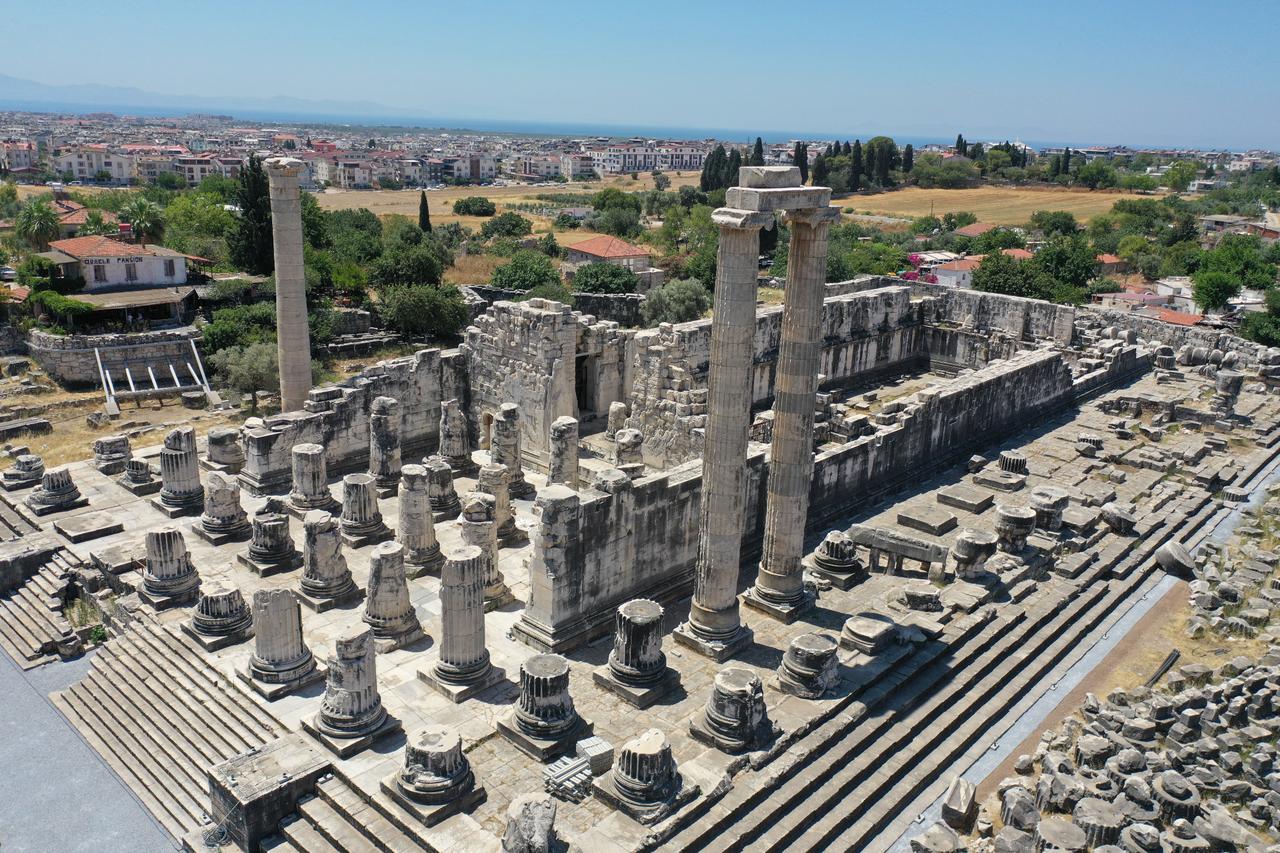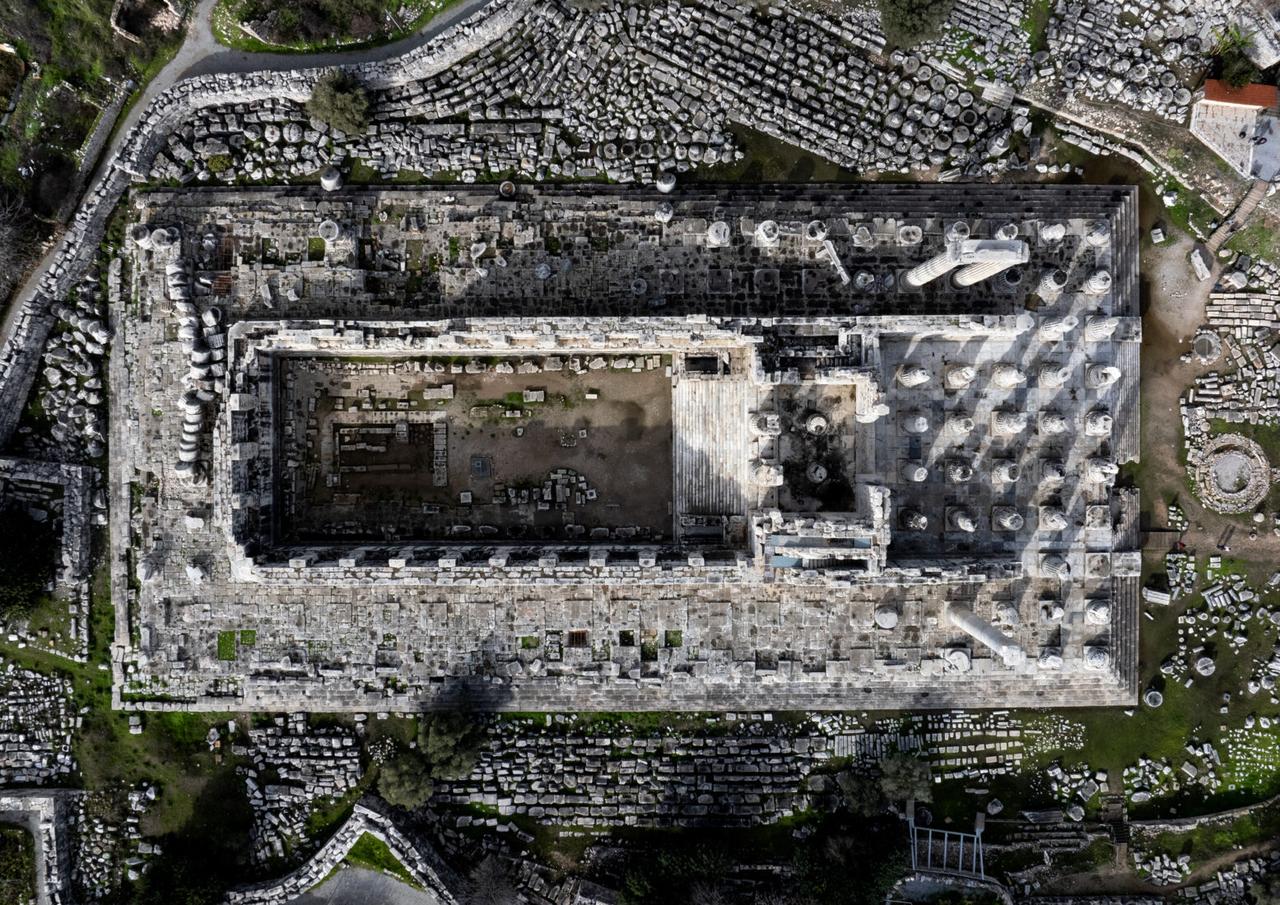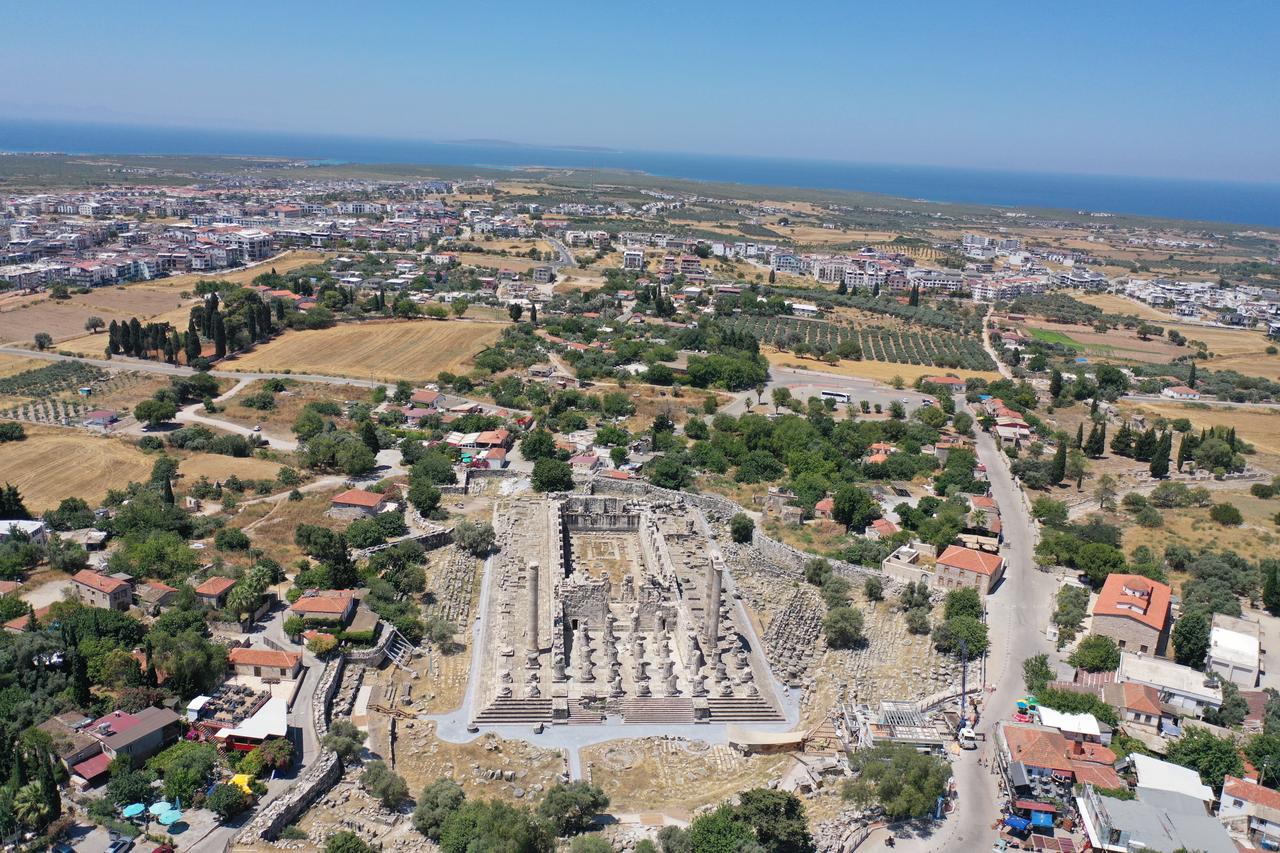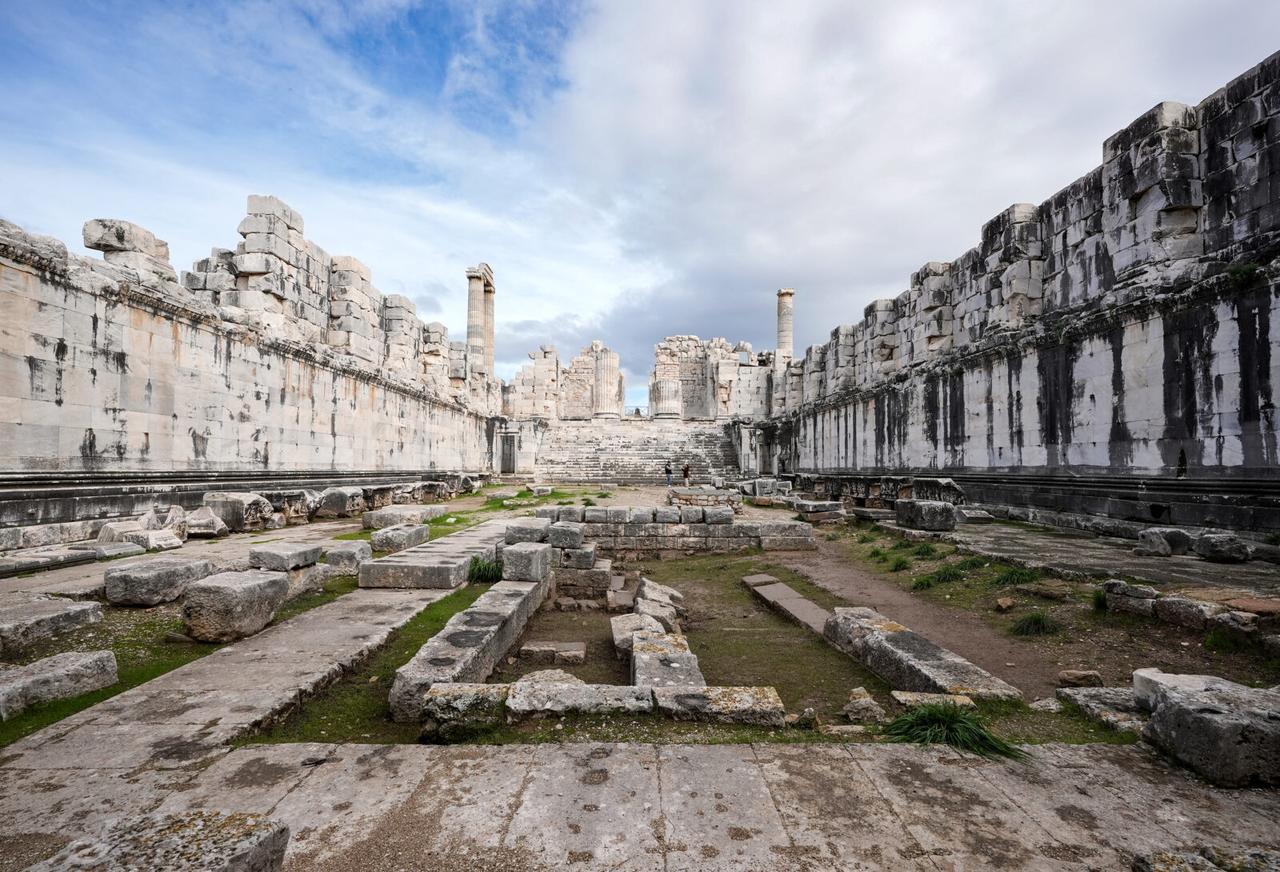
The Apollon Temple, one of the most iconic ancient sites in Türkiye’s Aegean region, is now opening its gates to night visitors as part of a broader initiative by the Ministry of Culture and Tourism. Located in the town of Didim, in the province of Aydin, the ancient sanctuary was once known as a “center of prophecy” in antiquity and is among the largest temples of the Ionian architectural tradition.

The new phase of “night museology” at the Apollon Temple is being introduced under the “Heritage for the Future” project. This initiative has brought new infrastructure, including completed walking routes and custom-designed lighting that now allow visitors to explore the ancient ruins after sunset. These enhancements aim to reshape how the space is perceived, offering an immersive experience framed by dramatic illumination.
Visitors will be able to walk beneath columns described in antiquity as a “forest of pillars,” while listening to tales of the temple’s oracles—figures once believed to hold the power of divine foresight. The lighting system has been designed to create a multi-tonal atmosphere, emphasizing the monumental scale of the temple, one of the few of its size still standing today.

Excavations at the Apollon Temple have a long history, first initiated by German archaeologists in 1905. Since 2024, these efforts have continued under the direction of the Milet Museum Directorate, which now also oversees the site’s museum development and restoration efforts.
According to Milet Museum Acting Director Arife Aslan, the current phase involved intensive work over the past seven months, including environmental landscaping and the creation of a new visitor reception area. The walking paths have already been completed, and work on the stairways is nearing completion. The reception center is expected to open to the public within the next two to three weeks.
The site currently receives between 130,000 and 150,000 visitors annually, but Aslan noted that with the introduction of night visits, the number is expected to increase.

The Apollon Temple’s historical significance extends far beyond its architecture. In ancient times, it was revered as a sanctuary where rulers sought divine counsel before battles or major decisions. Inscriptions show that leaders such as the pharaoh of Egypt, the famed Lydian King Croesus, and even Persian rulers consulted the temple’s oracles.
“To sustain the temple’s existence, large-scale donations were vital,” Aslan said. She explained that rulers from nearby regions often offered gold, luxury gifts, and even sacred objects. One such example is Pharaoh Necho of Egypt, who is recorded to have donated his armor to the temple.
Dating back to the eighth century B.C., the Apollon Temple shares many architectural features with the Temple of Artemis in Ephesus, one of the Seven Wonders of the Ancient World.
Ancient geographer Strabo was so impressed by the temple’s massive columns that he described it as “a temple within a forest of pillars.”